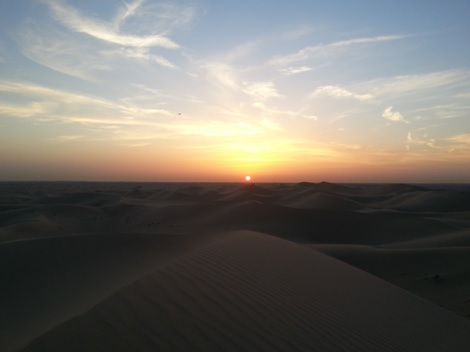
November 2, 2015, by Jon Henderson
From Dubai to Woking: the archaeological journey of a Nottingham graduate
Having returned from two months expedition working in Dubai as part of his Masters by Research, Nottingham student James Roberts has landed a professional archaeology job working with Surrey County Archaeological Unit. Leaving the desert behind for now he is set to examine the animal bones from a major Tudor settlement – the former Woking Palace.
‘Getting the opportunity to study the faunal remains from Saruq al-Hadid was entirely unexpected. Before my supervisor, Dr. Naomi Sykes, received the email inviting us to the site, my interests had not extended past the borders of the U.K. It was undoubtedly daunting accepting the invitation; I’d be taking two months out of my Masters study in order to embark on a new project, adding a considerable amount of work to an already heavy work-load. From the moment we arrived on site however, it was clear I had made the right decision.
We were housed in a compound located about 100 metres from the site, which itself is situated in the Rub’ al-Khali desert, the largest continuous sand desert in the world. Despite the high temperatures and potentially lethal fauna, I quickly settled into life on the compound. As is often the case in archaeology I found myself working and living with a team of fantastic people from a number of backgrounds, nationalities and cultures. Spending the majority of your waking hours with people ensures that strong bonds are formed!
Meals were prepared for us by a team of Middle Eastern and Asian workers who supplied plenty of food at breakfast, lunch and dinner. This gave our team plenty of time to work, with my working hours usually beginning at 8am and ending at around 5:30pm. The assemblage I was tasked to deal with was vast; dense layers of bone lie across the site, with many sitting exposed on the surface. After spending a week with Dr. Sykes setting up working protocols and laying out a plan I was left to study the material. Information was recorded from over 80,000 fragments during my two month stay, providing insights into the activities undertaken by humans on the site in the past, and their relationship with their inhospitable surroundings.
The entire experience made me realise how important it is to never squander an opportunity; there are always hundreds of reasons not to do something that can be conjured up in your head, but usually these reasons will never manifest themselves in reality. The importance of meeting people and making contacts within archaeology and other relevant areas was also made clear; I am currently in talks with the project director of the site, Dr. Lloyd Weeks, regarding the possibility of undertaking a PhD at his institution in Australia.
As my Masters study was coming to an end I accepted a paid offer to complete the analysis of a faunal assemblage in Woking, work that will culminate in a full report on the animal remains from the site. Whilst less exotic, the site is equally as interesting and I am confident that studying the assemblage will prove rewarding.’
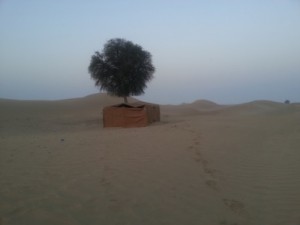
Home in the desert – James’ luxurious accommodation– a tent with a camp bed and rug (and that’s about it).
No comments yet, fill out a comment to be the first

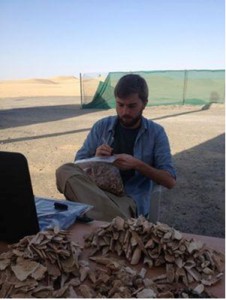
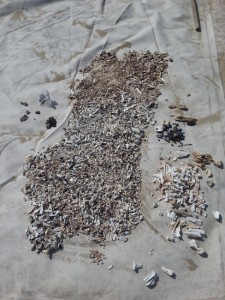
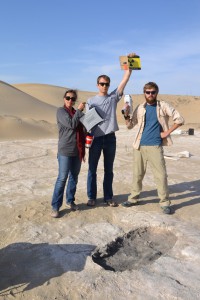
Leave a Reply